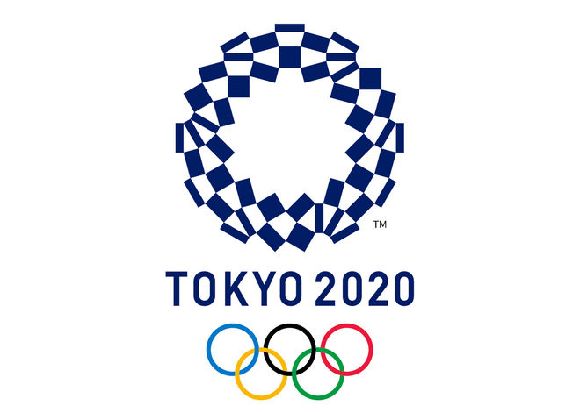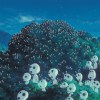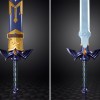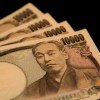
Chairman singles out two aspects of Japanese traditional culture that people of other nations “wouldn’t understand.”
The Olympics are an athletic competition, but there seems to be as much bated anticipation regarding what Tokyo has planned for the opening ceremony for the 2020 Summer Games as there is for any individual sporting event. While this isn’t Tokyo’s first time to be a host city, Japan set a high bar for itself when Prime Minister Shinzo Abe popped out of a pipe dressed as Super Mario at the closing ceremony of the 2016 Games in Rio de Janeiro.
That bit of unexpected cosplay was not only immensely entertaining, it’s a reflection of how much the global popularity of Japanese pop culture has grown since 1964, the last time the Olympics took place in Tokyo. In the 50-plus years since then, Japanese video games, music, and animation have built up passionate fanbases around the world.
That’s a connection Yoshiro Mori, chairman of the Tokyo Organizing Committee of the Olympic and Paralympic Games, wants to tap into for the 2020 opening ceremony. In a recent interview, Mori, who was also the Prime Minister of Japan for a 12-month period starting in 2000, spoke about his hopes for the opening and closing ceremonies, saying “We shouldn’t do anything too unusual.” Though that might make it sound like he’s against the idea of using pop culture to promote the Games, it’s actually more traditional things that he thinks the ceremonies should avoid.
“For example. even if we did kabuki or sumo wrestling, the people of the world wouldn’t understand them,” Mori expanded. “What they’ll understand most is anime and manga. Like Doraemon, Hello Kitty, and Astro Boy. A manga parade. Something like that would be good.”
In all fairness, it’s true that you’ll have an easier time finding passionate anime fans than active kabuki or sumo enthusiasts in countries outside Japan. Mori’s logic that “people of the world won’t understand” kabuki and sumo, though, is suspect.
Most people can instantly recognize those two traditional disciplines as symbols of Japanese culture, even if they’re not aware of their fine nuances and complete histories. And while Hello Kitty has achieved immense popularity overseas, Astro Boy and Doraemon have gotten lukewarm responses in most English-speaking regions of the planet, making them much less representative of Japan than kabuki or sumo to people from those parts of the globe.
That’s not to say Mori’s “manga parade” idea is completely crazy. Anime serves as many young people’s first major point of contact with Japanese culture and society. It’s not like other people involved with the Tokyo Olympics haven’t had similar ideas, and in the interview Mori also said that his primary goal for the Games is to put together “an event that will remain in people’s hearts.” Still, with a number of people in Japan not onboard with the prospect of doubling down on the country’s pop cultural appeal for an international event of such a large scale, hopefully there’ll still be room in the festivities for aspects of Japanese culture that go back farther than the last few decades.
Source: Jiji via Anime News Network/Jenifer Sherman
Top image: 2020 Olympics Official Website
Follow Casey on Twitter, where he’d actually be pretty OK with the organizing committee just making Yawara the official mascot character of the 2020 Games.

 Tokyo Olympics losing volunteers even after president’s resignation for sexist remarks
Tokyo Olympics losing volunteers even after president’s resignation for sexist remarks Tokyo Olympics organizing committee president resigns over sexist remarks
Tokyo Olympics organizing committee president resigns over sexist remarks Head of Tokyo Olympics doesn’t want women in leadership roles because he thinks they talk too much
Head of Tokyo Olympics doesn’t want women in leadership roles because he thinks they talk too much Tokyo Olympics opening ceremony preliminary ticket prices announced, wallets cry across Japan
Tokyo Olympics opening ceremony preliminary ticket prices announced, wallets cry across Japan Japan’s Prime Minister says he didn’t want to cosplay as Mario at the 2016 Olympics
Japan’s Prime Minister says he didn’t want to cosplay as Mario at the 2016 Olympics Practical Zelda Tears of the Kingdom merch is here to be Hyrule-helpful in your daily life【Pics】
Practical Zelda Tears of the Kingdom merch is here to be Hyrule-helpful in your daily life【Pics】 Starbucks releases an official green tea chai latte with special Japanese ingredients
Starbucks releases an official green tea chai latte with special Japanese ingredients Kyoto study finds nearly 500 translation errors for foreign tourists, new guidelines released
Kyoto study finds nearly 500 translation errors for foreign tourists, new guidelines released Uniqlo brings cultural cuteness to Edo animals T-shirt line with Japanese history’s greatest artists
Uniqlo brings cultural cuteness to Edo animals T-shirt line with Japanese history’s greatest artists This super cheap, super Japanese-looking Tokyo hotel is a hit with foreign travelers
This super cheap, super Japanese-looking Tokyo hotel is a hit with foreign travelers Tokyo’s beckoning cat temple asks foreign tourists to stop writing on the beckoning cats they buy
Tokyo’s beckoning cat temple asks foreign tourists to stop writing on the beckoning cats they buy Starbucks releases a new Matcha Frappuccino in Japan with a pun behind its creation
Starbucks releases a new Matcha Frappuccino in Japan with a pun behind its creation 2nd line of Casio watch rings hits Japanese capsule machines and we got the secret one!
2nd line of Casio watch rings hits Japanese capsule machines and we got the secret one! McDonald’s Happy Meals in Japan now come with Shinkansen robots
McDonald’s Happy Meals in Japan now come with Shinkansen robots Ultra-cheap, convenient Tokyo hotel is a great place to stay…if you pay extra for earplugs
Ultra-cheap, convenient Tokyo hotel is a great place to stay…if you pay extra for earplugs Starbucks releases special matcha Frappuccino made with Japan’s first matcha leaves of the year
Starbucks releases special matcha Frappuccino made with Japan’s first matcha leaves of the year Yes, our new smartphone looks like at least two Studio Ghibli anime characters, Sharp says
Yes, our new smartphone looks like at least two Studio Ghibli anime characters, Sharp says Japanese man tells friend to wear suit to wedding party, so he comes as Mobile Suit Gundam
Japanese man tells friend to wear suit to wedding party, so he comes as Mobile Suit Gundam Life-size vibrating Legend of Zelda Master Sword for sale from Nintendo【Photos】
Life-size vibrating Legend of Zelda Master Sword for sale from Nintendo【Photos】 Mt. Fuji-blocking screen installed as response to bad tourist manners to be in place by next week
Mt. Fuji-blocking screen installed as response to bad tourist manners to be in place by next week Cool capsule toys recreate how Japan navigated trains in pre-smartphone days【Photos】
Cool capsule toys recreate how Japan navigated trains in pre-smartphone days【Photos】 Foreigner’s request for help in Tokyo makes us sad for the state of society
Foreigner’s request for help in Tokyo makes us sad for the state of society McDonald’s new Happy Meals offer up cute and practical Sanrio lifestyle goods
McDonald’s new Happy Meals offer up cute and practical Sanrio lifestyle goods New Tokyo restaurant charges higher prices to foreign tourists than Japanese locals
New Tokyo restaurant charges higher prices to foreign tourists than Japanese locals “Mt. Fuji convenience store” issues apology for bad tourist manners, adds multilingual signs
“Mt. Fuji convenience store” issues apology for bad tourist manners, adds multilingual signs Tokyo’s famous Lost in Translation hotel is closed
Tokyo’s famous Lost in Translation hotel is closed Japanese ramen restaurants under pressure from new yen banknotes
Japanese ramen restaurants under pressure from new yen banknotes Bad tourist manners at Mt Fuji Lawson photo spot prompts Japanese town to block view with screens
Bad tourist manners at Mt Fuji Lawson photo spot prompts Japanese town to block view with screens Sales of Japan’s most convenient train ticket/shopping payment cards suspended indefinitely
Sales of Japan’s most convenient train ticket/shopping payment cards suspended indefinitely Sold-out Studio Ghibli desktop humidifiers are back so Totoro can help you through the dry season
Sold-out Studio Ghibli desktop humidifiers are back so Totoro can help you through the dry season Japanese government to make first change to romanization spelling rules since the 1950s
Japanese government to make first change to romanization spelling rules since the 1950s Ghibli founders Toshio Suzuki and Hayao Miyazaki contribute to Japanese whisky Totoro label design
Ghibli founders Toshio Suzuki and Hayao Miyazaki contribute to Japanese whisky Totoro label design Tokyo’s most famous Starbucks is closed
Tokyo’s most famous Starbucks is closed Doraemon found buried at sea as scene from 1993 anime becomes real life【Photos】
Doraemon found buried at sea as scene from 1993 anime becomes real life【Photos】 One Piece characters’ nationalities revealed, but fans have mixed opinions
One Piece characters’ nationalities revealed, but fans have mixed opinions We asked a Uniqlo employee what four things we should buy and their suggestions didn’t disappoint
We asked a Uniqlo employee what four things we should buy and their suggestions didn’t disappoint Pikachu and Super Mario left out of lineup of official spokescharacters for Tokyo Olympics
Pikachu and Super Mario left out of lineup of official spokescharacters for Tokyo Olympics Tokyo Olympics to allow spectators, provided they “cheer quietly”
Tokyo Olympics to allow spectators, provided they “cheer quietly” Looks like it’s time to say good-bye, and maybe good riddance, to the 2020 Tokyo Olympics logo
Looks like it’s time to say good-bye, and maybe good riddance, to the 2020 Tokyo Olympics logo Tokyo Olympics will not allow spectators from overseas
Tokyo Olympics will not allow spectators from overseas Tokyo train stations get new Olympic melodies and signage for the Games
Tokyo train stations get new Olympic melodies and signage for the Games Applications for the ticket lottery for Tokyo 2020 Olympics matches and ceremonies are now open!
Applications for the ticket lottery for Tokyo 2020 Olympics matches and ceremonies are now open! Georgian Paralympic judo athlete arrested for attacking a security guard in a Tokyo hotel
Georgian Paralympic judo athlete arrested for attacking a security guard in a Tokyo hotel Japan ministry urges universities to adjust curriculum to accommodate student Olympic volunteers
Japan ministry urges universities to adjust curriculum to accommodate student Olympic volunteers Tokyo Olympics and Paralympics mascot finalists unveiled【Pics & Video】
Tokyo Olympics and Paralympics mascot finalists unveiled【Pics & Video】 Tokyo Olympics bans fans from posting videos of the Games on their social media accounts
Tokyo Olympics bans fans from posting videos of the Games on their social media accounts Is there an adorably chubby bird hiding inside the Tokyo Olympics logo?
Is there an adorably chubby bird hiding inside the Tokyo Olympics logo? Bug-riddled Olympics game has Japanese Twitter in stitches with all of its glitches 【Video】
Bug-riddled Olympics game has Japanese Twitter in stitches with all of its glitches 【Video】 Tokyo Olympics might allow you to take one, and only one, drink with you into sweltering stadiums
Tokyo Olympics might allow you to take one, and only one, drink with you into sweltering stadiums Tokyo Olympics comes to a close with anime opening ska remix at closing ceremony 【Video】
Tokyo Olympics comes to a close with anime opening ska remix at closing ceremony 【Video】 The 2020 Tokyo Olympics announces the winner of its adorable mascot election
The 2020 Tokyo Olympics announces the winner of its adorable mascot election
Leave a Reply